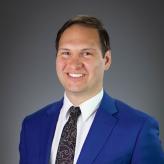10th Circuit protects students' right to sue anonymously when a college violates their free speech rights

DENVER – The U.S. Court of Appeals for the 10th Circuit ruled Friday to protect Americans’ right to speak and associate anonymously, free from government-mandated disclosure.
In the case, Speech First v. Shrum, Oklahoma State University officials allegedly violated students’ constitutionally protected rights by enforcing vague and overly broad policies that censor students’ speech based on their viewpoints. Speech First filed suit on behalf of several anonymous students who feared retaliation. But the district court required Speech First to reveal those members’ identities if it wanted to proceed with the case. The 10th Circuit’s ruling protects Speech First’s members’ right to speak and associate anonymously.
“The First Amendment protects Americans’ freedom to speak and associate anonymously, and the government can’t categorically force student organizations to publicly disclose their member lists,” said ADF Legal Counsel Mathew Hoffmann. “Free speech—not censorship—promotes true understanding and allows all of us to remain faithful to the individual liberties that make our country great. Young America’s Foundation, Manhattan Institute, and Speech First understand the importance of the First Amendment’s anonymity protections, and thankfully, the 10th Circuit affirmed the freedom to speak without fear of government reprisal.”
ADF attorneys filed a friend-of-the-court brief in May on behalf of YAF and the Manhattan Institute. In it, they explained that government entities have subjected YAF, like Speech First, to unlawful demands that it turn over its membership lists as a condition to filing suit in federal court. Members of YAF, and other students with similar views, often face persistent hostility on college campuses for their religious or political beliefs and, thus, reasonably desire their association with the student organization and identities to remain anonymous.
“The issue that the court correctly resolved here may seem narrow but it’s a big deal. I’m gratified that the students can continue challenging their university’s illiberal policies and actions without subjecting themselves to official sanction and unofficial cancellation,” said Ilya Shapiro, director of constitutional studies at Manhattan Institute.
“The Tenth Circuit’s ruling ensures that students can continue to challenge unconstitutional university policies and administrative censorship, without fear. This is a great victory for free speech and for students across the country,” said Vic Bernson, vice president and general counsel of YAF.
The ADF Center for Academic Freedom is dedicated to protecting First Amendment and related freedoms for students and faculty so that everyone can freely participate in the marketplace of ideas without fear of government censorship.
# # #
Related Profiles

